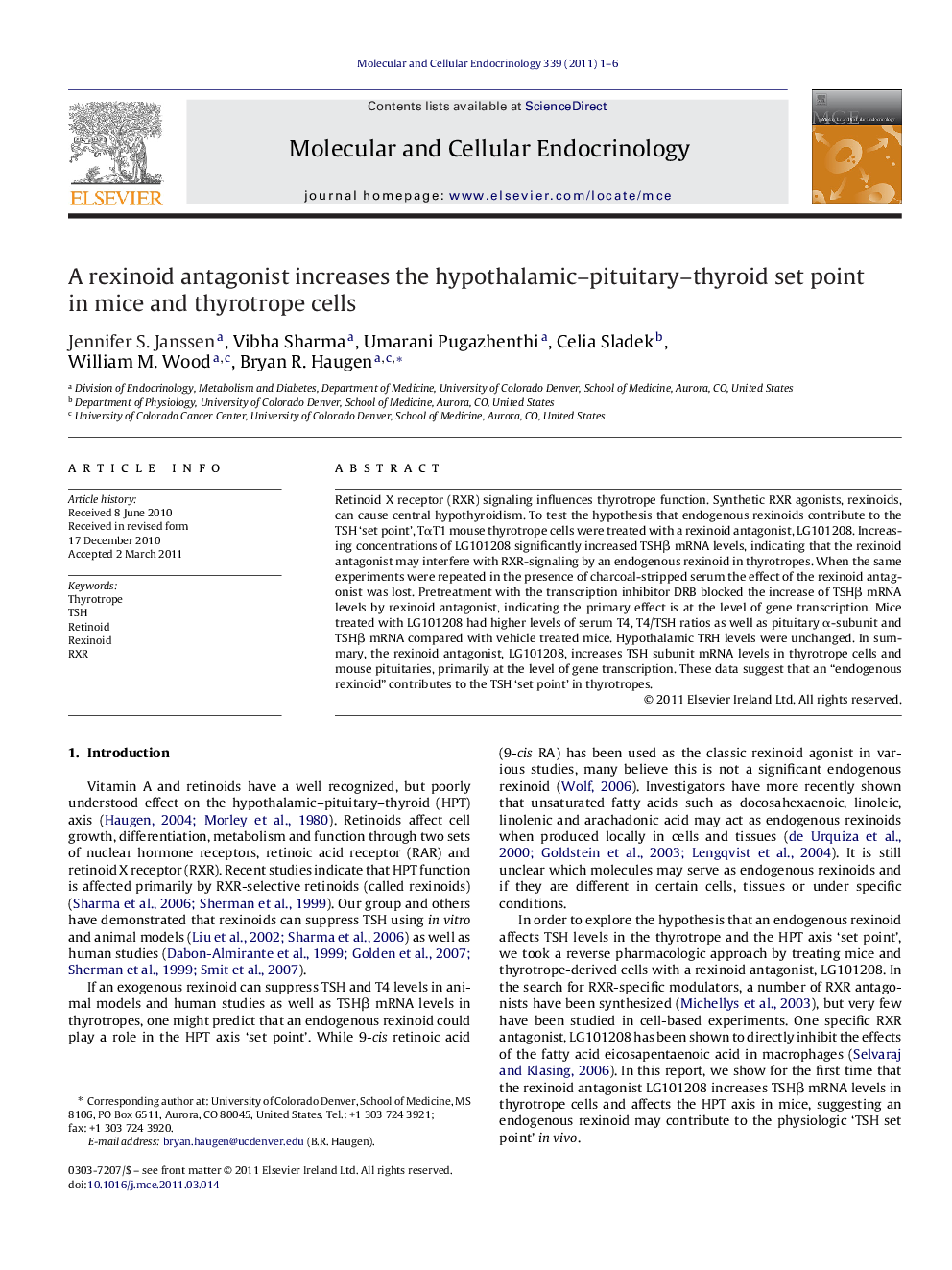| Article ID | Journal | Published Year | Pages | File Type |
|---|---|---|---|---|
| 8477791 | Molecular and Cellular Endocrinology | 2011 | 6 Pages |
Abstract
Retinoid X receptor (RXR) signaling influences thyrotrope function. Synthetic RXR agonists, rexinoids, can cause central hypothyroidism. To test the hypothesis that endogenous rexinoids contribute to the TSH 'set point', TαT1 mouse thyrotrope cells were treated with a rexinoid antagonist, LG101208. Increasing concentrations of LG101208 significantly increased TSHβ mRNA levels, indicating that the rexinoid antagonist may interfere with RXR-signaling by an endogenous rexinoid in thyrotropes. When the same experiments were repeated in the presence of charcoal-stripped serum the effect of the rexinoid antagonist was lost. Pretreatment with the transcription inhibitor DRB blocked the increase of TSHβ mRNA levels by rexinoid antagonist, indicating the primary effect is at the level of gene transcription. Mice treated with LG101208 had higher levels of serum T4, T4/TSH ratios as well as pituitary α-subunit and TSHβ mRNA compared with vehicle treated mice. Hypothalamic TRH levels were unchanged. In summary, the rexinoid antagonist, LG101208, increases TSH subunit mRNA levels in thyrotrope cells and mouse pituitaries, primarily at the level of gene transcription. These data suggest that an “endogenous rexinoid” contributes to the TSH 'set point' in thyrotropes.
Keywords
Related Topics
Life Sciences
Biochemistry, Genetics and Molecular Biology
Cell Biology
Authors
Jennifer S. Janssen, Vibha Sharma, Umarani Pugazhenthi, Celia Sladek, William M. Wood, Bryan R. Haugen,
